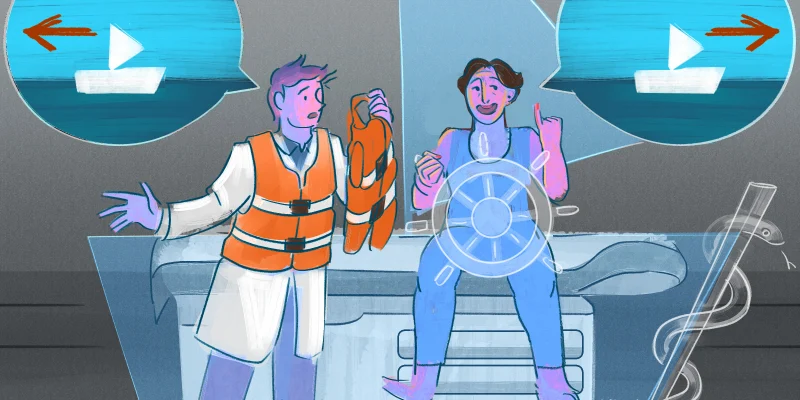Just three years ago, my wife and I were in a huge financial hole. In fact, our financial situation at the end of my training is the worst I’ve seen. And I mean that. I have yet to meet someone starting off in a worse spot. And don’t get me wrong, I started off so bad 100% because of my own doing — poor financial decisions and even less knowledge.
These days, my net worth is $792,907, thanks to my commitment to growing my knowledge and facing my fears of personal finance. Moral of the story? No matter your situation, you can improve your net worth.
One way I began to improve my net worth was to analyze it closely. I first started doing this in June 2020, at the end of my training and the beginning of my financial education. At that time, things were bleak: My net worth was around negative $520,000. I hated seeing these numbers. But it gave me a starting point so I could work to make them better.
Since that time, I’ve accumulated a $1,312,907 increase in net worth. (Which I accomplished by following our written financial plan). The acceleration has flattened out a bit, as is bound to happen from time to time. The economy has stalled. We have been mired in a bear-type market. But this really doesn’t matter. My wife and I are well on our way to meeting our financial goals!
Today, I have the following assets: home ($833K); other real estate ($1.5M); car ($26K); jewelry ($2K), household items ($5K), retirement accounts ($196K), checking and savings ($108K).
And the following liabilities: home mortgage principal ($630K), other mortgage principal ($915K), student loans ($347K), credit card debt ($1,500).
Some of these numbers are obviously estimates, like our household items. I kept this on the conservative side. Also, this is a snapshot in time — it’s our cash and savings right now, not forever.
Assets:
Right now, our biggest assets are our primary home and our investment properties.
Now I know, I am totally on the side of saying that your primary home is not an asset. And we don’t treat it that way. But we do include it in our net worth calculations.
Investment properties, on the other hand, have made a huge impact on our assets. Cash flow and forced appreciation resulted in home value gains of near $100,000 for at least three properties. However, we don’t even count the forced appreciation values in our net worth calculations. We just include the market values. We would rather under- than overestimate. Either way, real estate investing has been the single biggest positive influence on our net worth. And this doesn’t even count the tax benefits.
Liabilities:
Our biggest liabilities are the mortgages on our primary home and our investment properties.
But — notice that our primary home is about a wash when comparing our assets and liabilities. It counts as 31% of our assets and 34% of our liabilities.
Meanwhile, our investment properties count 57% toward our assets and only 48% toward our liabilities! That, my friends, is the power of leverage!
Lastly, student loans remain a big part of my liabilities. However, we continue to pay them down aggressively. Each month, we pay huge amounts from our 43-50% savings rate to pay off my student loans. Each $1 we pay off is $1 that our net worth increases.
It also helps that we have no auto loans or other consumer debt. This is because we pay for every big purchase in cash after we have saved enough. Or we pay on our credit card to get points and then pay off the entire balance at the end of the month (or else the points aren’t worth it!).
It’s also important to put this number into perspective based on my expected net worth. I go in depth about how to calculate your expected net worth here. Based on that formula, my expected net worth is $241,000. So, we are doing really well at greater than $500,000 more than expected net worth!
Tracking your net worth trajectory is a great way to be aware of your financial health. You can pick out the things that are making it better and choose to do more of those things. You can also pick out the things that are making it worse and choose to do less of those things.
My fellow physicians, I urge you to spend time tracking your net worth — it’s your personal finance scorecard. Doing so can make a huge difference in your financial life.
Do you track your net worth? If so, how has your net worth changed since you started tracking it? Share in the comments!
Jordan Frey, MD is a plastic surgeon in Buffalo, NY at Erie County Medical Center and the University of Buffalo. His clinical focus is on breast reconstruction and complex microsurgery. He is also the founder of The Prudent Plastic Surgeon, one of the fastest growing finance blogs. There, he shares his journey to financial well-being with a goal of helping all physicians reach financial freedom, practicing on their own terms.
Illustration by April Brust







